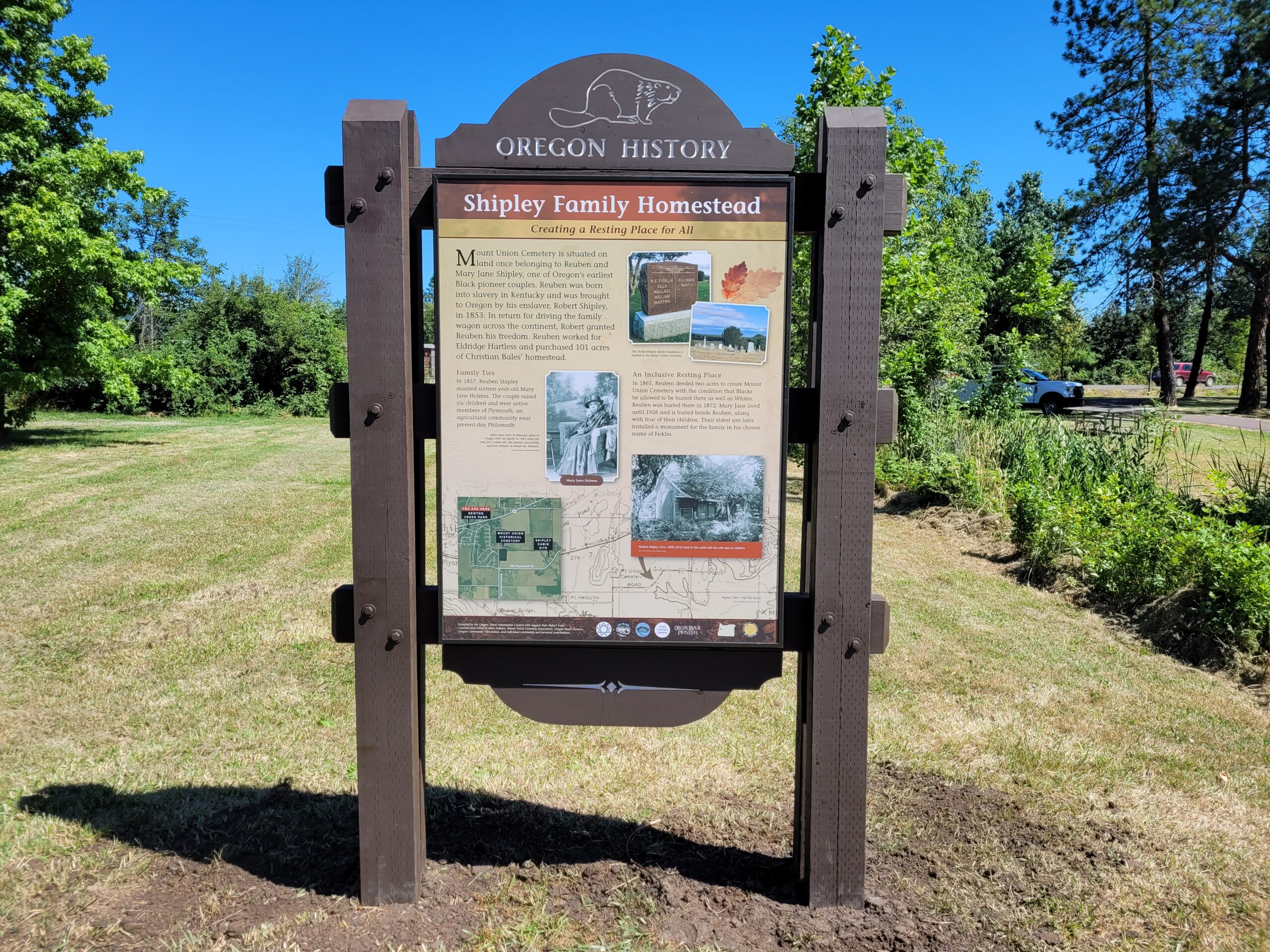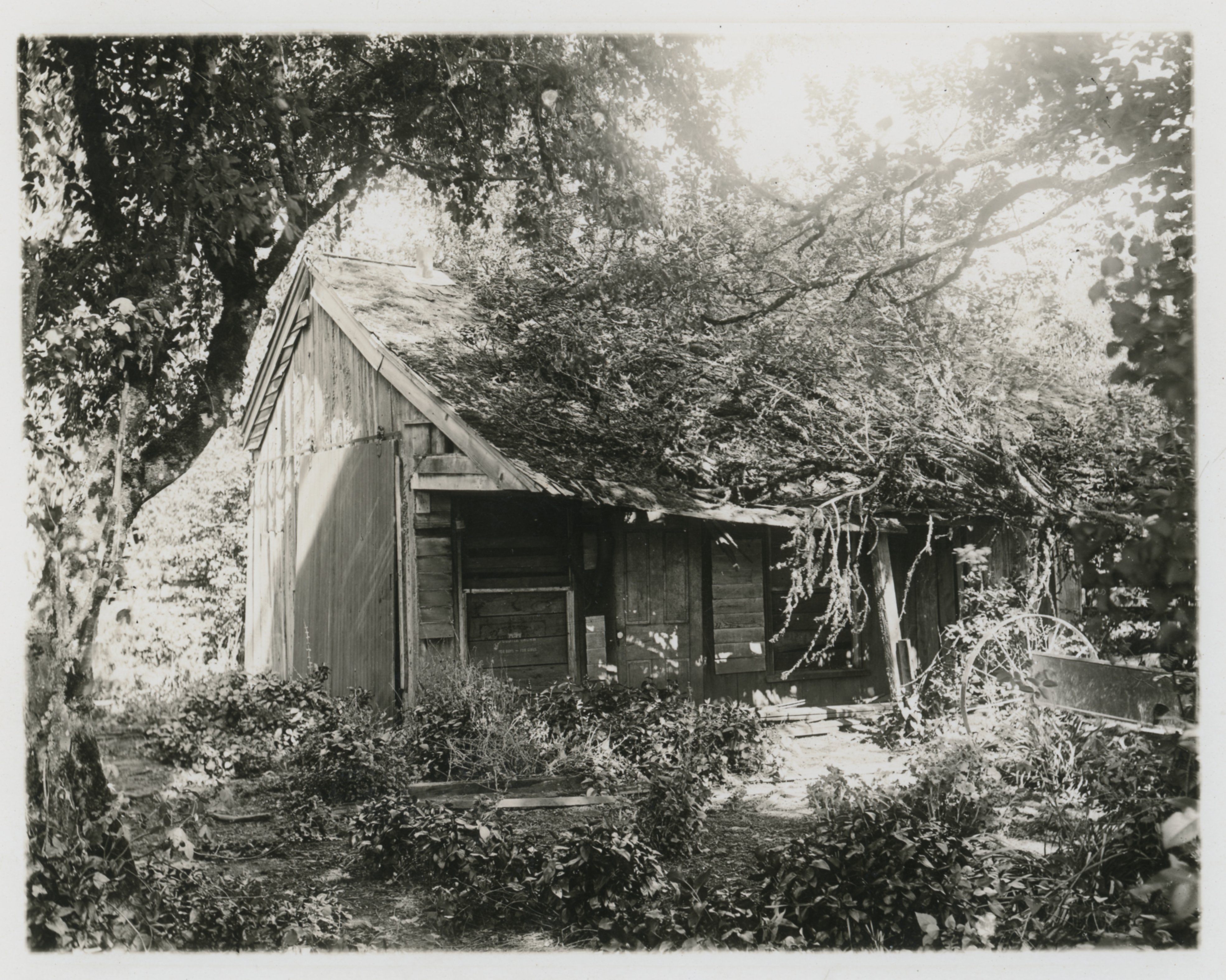Shipley Family Homestead
Posted on: July 21st, 2022 in Historical Marker Details |


Reuben Shipley was born a slave in Kentucky and emigrated to the Willamette Valley over the Oregon Trail in 1853 with his enslaver, Robert Shipley. In return for accompanying the family to Oregon, Reuben was given his freedom and worked for Eldridge Hartless on a farm south of Corvallis. He saved $1,500 with which he purchased 101 acres of the Charles Bales’ Donation Land Claim.
Mary Jane Holmes was born in Missouri in 1841 and her family emigrated to Oregon as slaves of Nathaniel Ford when she was just three years old. Ford allowed Mary Jane’s parents to move out of his household but refused to allow her and her siblings to go with them. Mary Jane’s father Robin Holmes began a long legal battle to regain custody of his children. In 1853, Oregon Supreme Court Justice George H. Williams awarded custody of the three children to their parents on the grounds there was no legal precedent for slavery in Oregon. Mary Jane voluntarily remained with the Fords as a free servant for another four years.
In 1857 Reuben married Mary Jane Holmes after paying Nathaniel Ford $700. Ford demanded the money even though Mary Jane had been liberated by the Territorial Supreme Court four years earlier.
The Shipley family was highly regarded in Plymouth, which was an unincorporated farming community within what is today Philomath. In 1861, the Shipleys donated two acres of their land to what became Mount Union Cemetery. Reuben was buried there in 1872. Mary Jane lived until 1926 and is was buried beside Reuben, along with four of their children. Their eldest son later installed a monument for the family in his chosen name of Ficklin.
The Shipley story recognizes Oregon’s complex history with Black residents and the resilience of early Black settlers.
Location: Philomath at the entrance to Newton Creek Park, near the Hunsicker Bike Path at the intersection of Newton and James Streets.
This marker was made possible through the support of the Oregon Community Foundation, the Confederated Tribes of the Siletz Indians, the Baha’i Faith of Corvallis, the Oregon Black Pioneers, and contributions of 43 individual donors.
 Payments
Payments